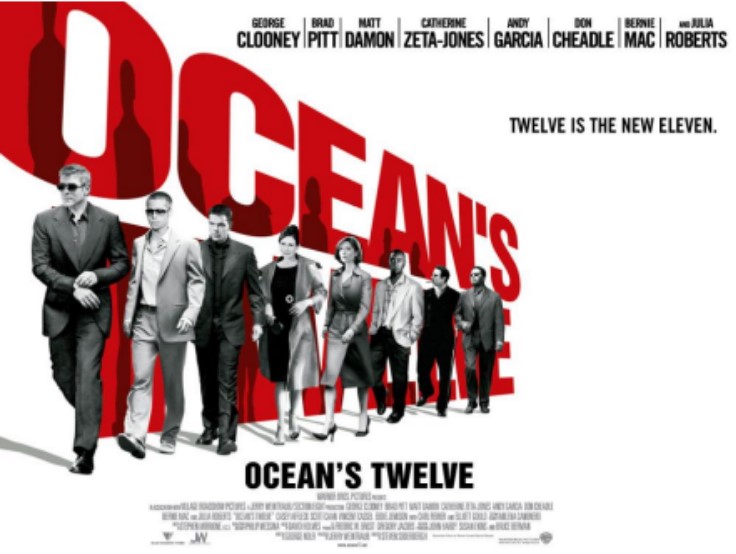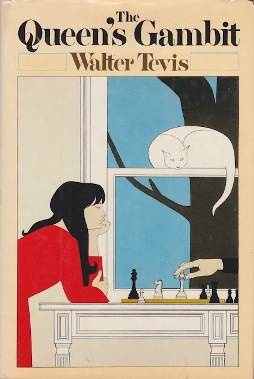By Jamie Beecroft, Year 12
Following the release of the smash hit Ocean’s Eleven in 2001, director Steven Soderberg was left with full creative control to make the sequel he wished. No one expected the movie that we got. Despite its predecessor’s success Ocean’s Twelve did not resonate with the audience to the same extent as the original. Many reviewers concluded that Soderberg had grown lazy, relying too heavily on the charisma and chemistry of its star studded cast. The heist component that had led to the original’s success was underwhelming; boiling down to the climactic heist to be explained by a simple switch of identical bags. In spite of all this Ocean’s Twelve remained my favourite installment of the otherwise acclaimed film series. So this leads me to ask:
Should it remain to be seen as a disappointing sequel, or are we missing something?
The key lies in the expectations coming into the film. If you are to come in expecting a complex heist film, you are bound to be disappointed. Twelve is not a true heist film, but a witty comedy if nothing else. No better scene exemplifies this than midway into the film, when Julia Roberts’ character Tess is asked to pretend to be Julia Roberts. Such a scene could not fly in any other heist film. It is the unique nature of the Ocean’s films which allows this scene to work. The script writers are making fun of the sheer volume of high-status actors working on this film. The scene breaks the fourth wall since it is counting on the audience to know that the actress playing the character of Tess is in fact the real Julia Roberts. Therefore drawing attention to the celebrity obsessed nature of the film industry. If
the audience had not been aware of this, then the joke would not have landed and the subsequent backlash stemming from this scene would not have ensued.
Whilst the first film depicts the crew getting gathered together Twelve serves as a way to expand on the quirks and weirdness of each of the members. By the scenery being changed and the majority of the film taking place in Europe, locations such as Amsterdam, Paris, Monte Carlo, Rome and Sicily, the characters are taken out of a familiar environment and forced to be presented purely through their actions. The viewer should not confuse the subject of the film with the object. It is about a heist but this is not the main plot point of the story. Even the scenes where the several heists are being planned the audience’s attention is not on how it is being executed, since much of the information is hidden until the actual heist, but instead on the banter between the the members of Ocean’s Twelve they attempt to execute complex robberies that are the consequent of years of experience in the business of theft and hoaxing.
All in all, I hope on your next re-watch of the Ocean’s franchise you can gain a greater appreciation for what Soderberg achieved with the middle child of the series. Or perhaps it is that as a middle child myself I am simply attempting to justify how it is possible to be outshone by one’s more successful older sibling. This could be true or not. Nevertheless, I rest my case, and leave this decision in the hands of my reader.
PS: In the research for this article I have found that several years after the release of the film, many other blogs, journals and newspapers have spoken on how this film may have been misunderstood or misinterpreted. I did not wish to rip-off these opinion pieces off. My intention was to solely express my view on one of the most underappreciated pieces of cinema of all time (in my opinion, as always).



